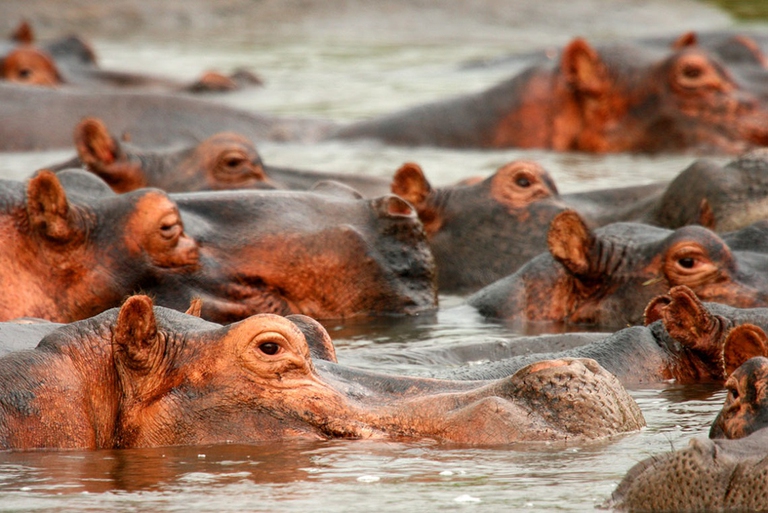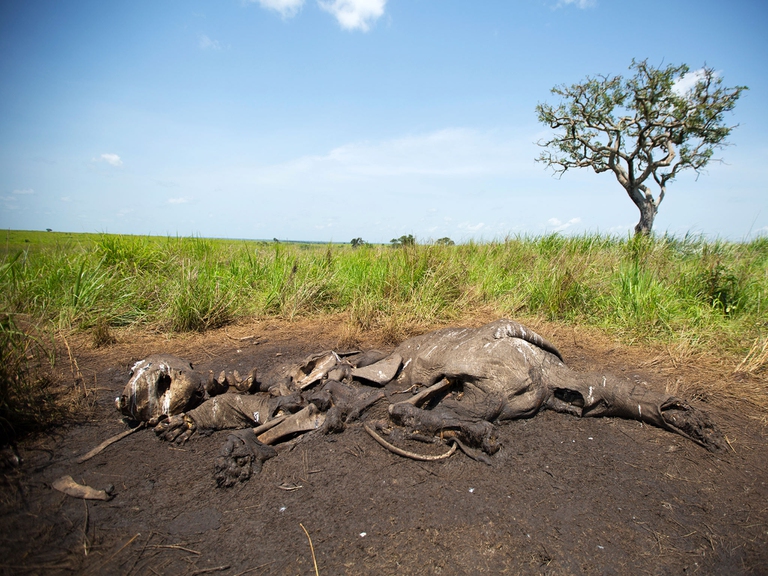
A report by Ember explains that in 2025 electricity generation from renewables (solar, wind and hydropower) surpassed that from fossil fuel sources.
Garamba National Park, Democratic Republic of the Congo, is one of the most important and ancient natural parks in Equatorial Africa. It is home to a huge variety of wildlife including elephants, lions, giraffes, hippos and white rhinos. More precisely, it is home to what’s left of these animals’ ancient populations, after decades of relentless poaching.
Garamba National Park, Democratic Republic of the Congo, is one of the most important and ancient natural parks in Equatorial Africa. It is home to a huge variety of wildlife including elephants, lions, giraffes, hippos and white rhinos. More precisely, it is home to what’s left of these animals’ ancient populations, after decades of relentless poaching.
The park, founded in 1938 and World Heritage Site since 1980, continues being theatre of bloody conflicts between poachers and rangers trying to protect wildlife. On 24 April, three rangers have been killed and two injured during gunfire with poachers. All victims were part of African Parks, Dutch-Southern African non-governmental organisation that manages numerous natural parks in Africa.
According to the organisation, rangers Dimba Richard, Anigobe Bagare, and Matikuli Tsago were killed, while park director Erik Mararv and ranger Kenisa Adrobiago were injured and are now in a stable condition. Further details haven’t been released yet.
Garamba National Park extends for 13,000 square kilometres and is home to vast savannahs, meadows and forests. It was once home to elephants and other wild animals, but today wildlife and conservationists are constantly threatened. Last year alone, 5 park rangers and three members of the Congolese armed forces were killed by poachers.
Ivory trade is strictly linked to terrorism. Over the past decade, militants of the infamous terroristic group Lord’s Resistance Army have been operating in the park, as well as all over Central Africa, threatening rangers.
“We are devastated by this latest loss,” said CEO of African Parks Peter Fearnhead. “Rangers put their lives on the line each and every day, and are under real siege in Garamba protecting elephants from heavily incentivised and militarized poaching gangs”. The families of the victims will be indemnified, for an amount six times their salary plus donations.
Despite China and the United States are committed to gradually eliminating ivory imports at an international level, poaching levels remain high, killing over 35,000 African elephants every year and threatening their survival in Africa.
Siamo anche su WhatsApp. Segui il canale ufficiale LifeGate per restare aggiornata, aggiornato sulle ultime notizie e sulle nostre attività.
![]()
Quest'opera è distribuita con Licenza Creative Commons Attribuzione - Non commerciale - Non opere derivate 4.0 Internazionale.
A report by Ember explains that in 2025 electricity generation from renewables (solar, wind and hydropower) surpassed that from fossil fuel sources.
The Tyler Prize, considered the “Nobel Prize for the Environment,” has been awarded to Toby Kiers, an American biologist working in Amsterdam.
Belgium is one of the countries most exposed to climate change. Dune–dikes are a solution to curb sea-level rise.
Between October 2024 and September 2025, the average temperature in the Arctic was 1.6 degrees Celsius higher than during the 1991–2020 period.
Undeclared conflicts of interest, paid authors, lack of transparency: one of the most cited studies on glyphosate, published in 2000, has been retracted.
The Copernicus service has released data for the first eleven months of 2025: global warming is set to come close to last year’s record.
The European Council and Parliament have reached an agreement on the European Commission’s proposal to deregulate new GMOs. But farming, organic agriculture, and environmental organizations are calling for it to be stopped.
The world’s second-largest producer has taken a historic decision. However, farms will have until 2034 to shut down.
A Greenpeace report denounces Russia’s political and economic model: a nexus of extractivism, authoritarianism and war that is destroying the environment, with serious repercussions for the global ecosystem.









